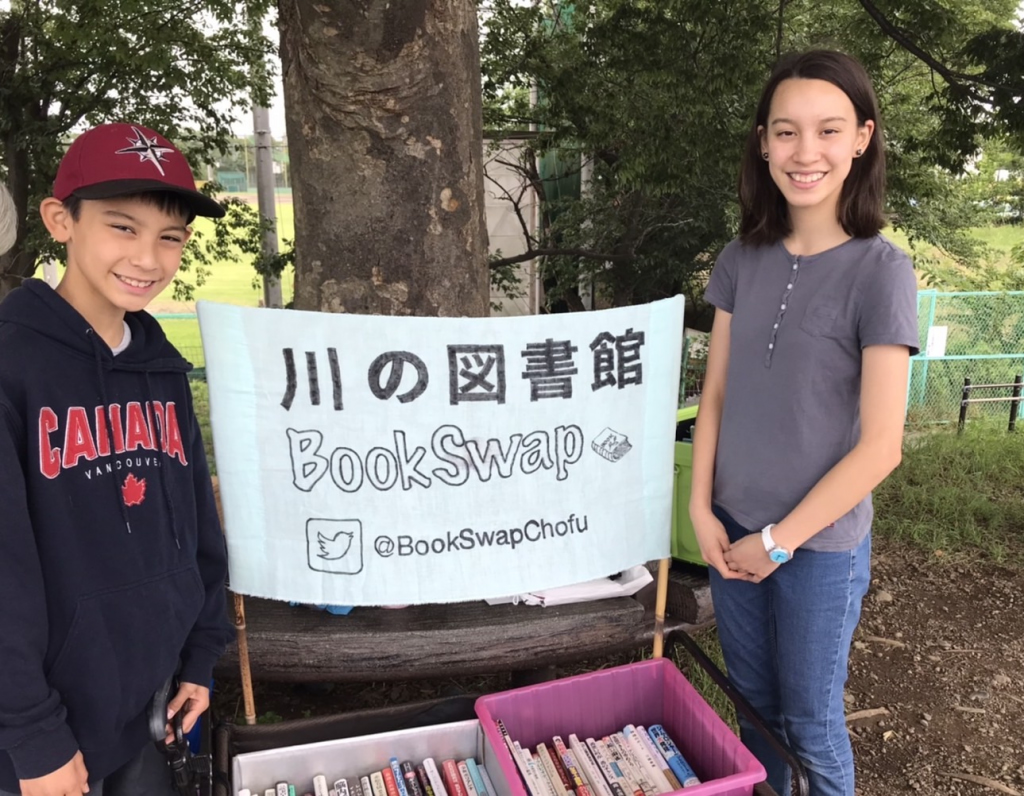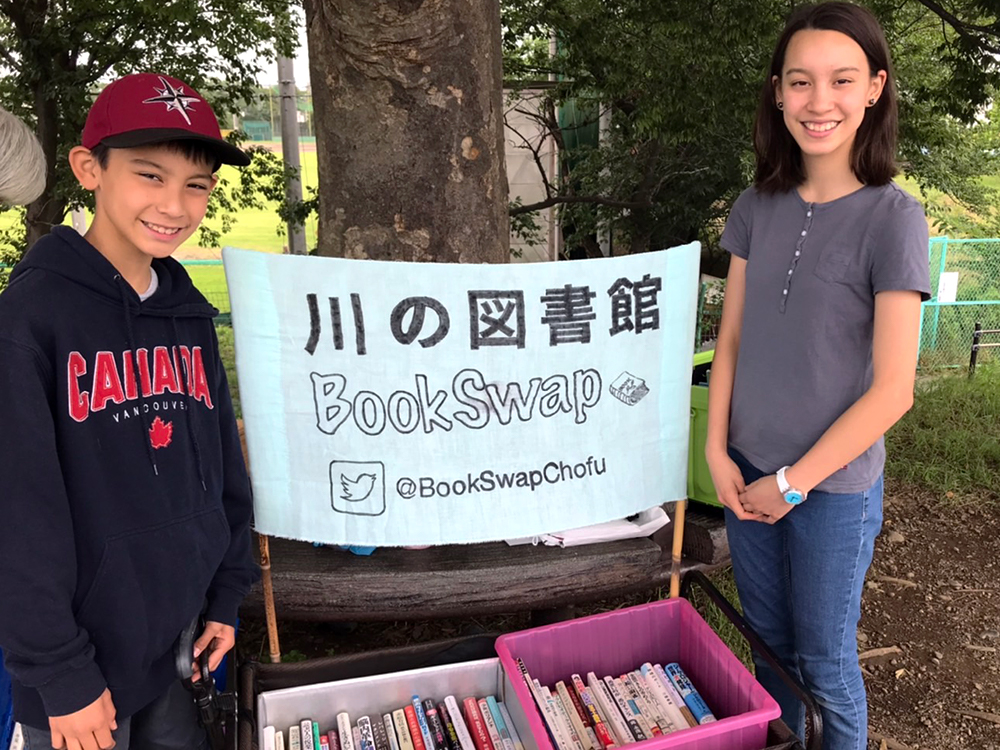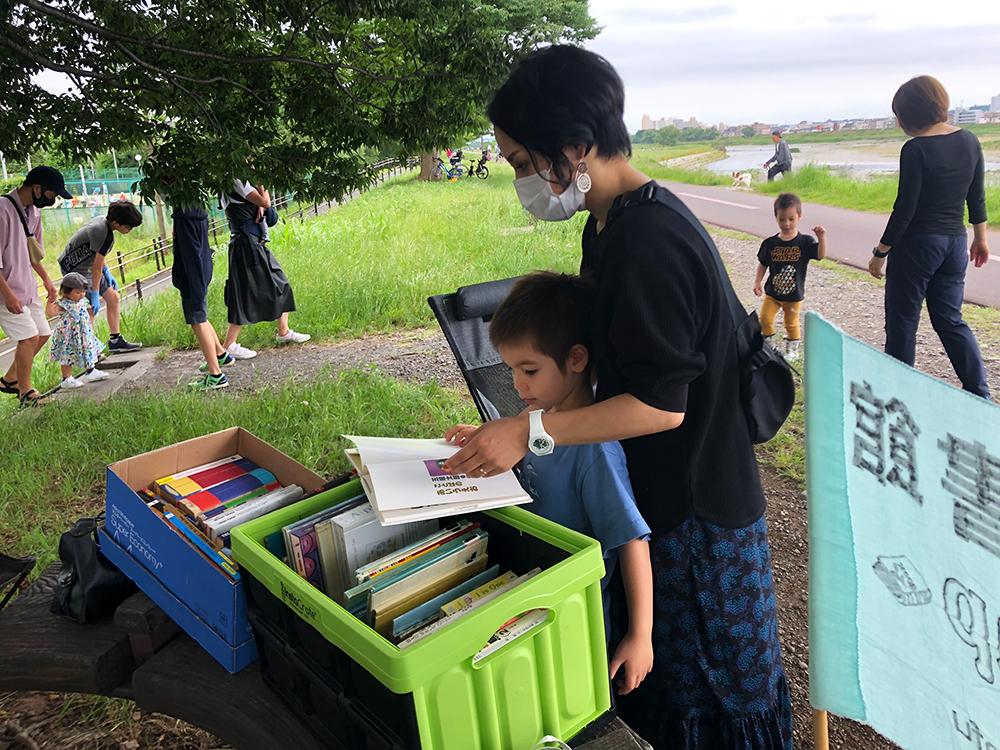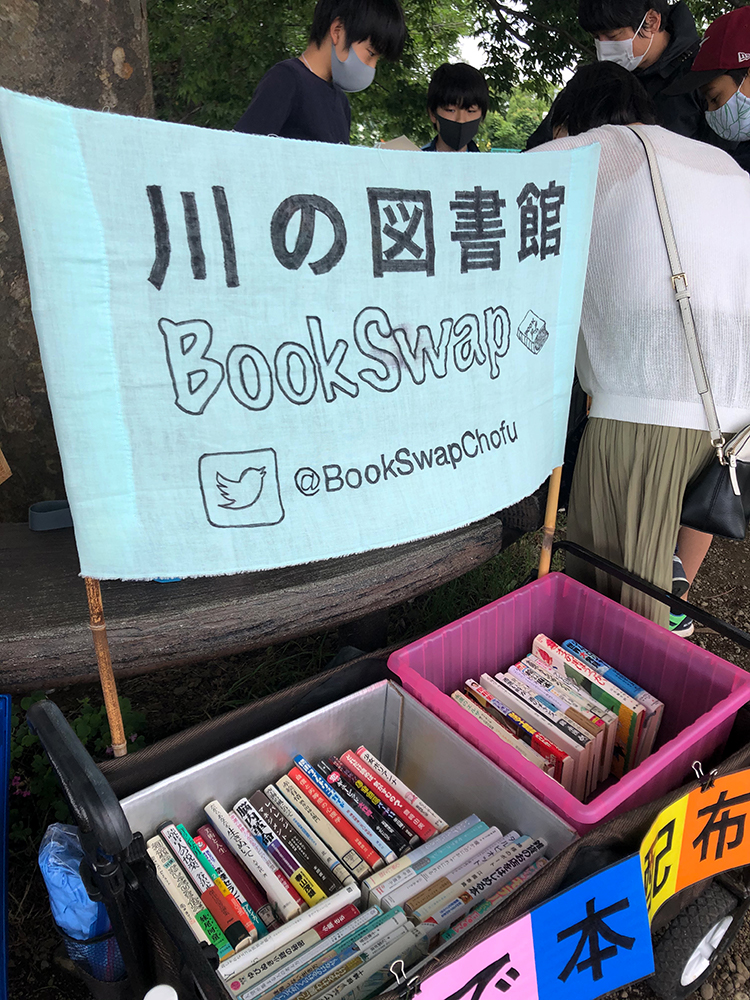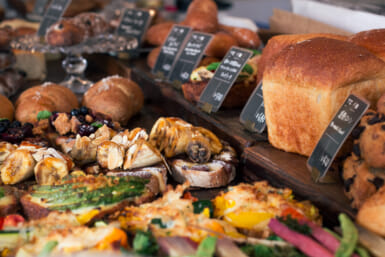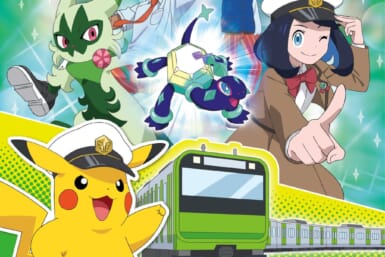On the banks of the Tama River under the sprawling branches of a zelkova tree a lady pulls a copy of the book, Job Guidance for the 13-year-olds and All Triers, from a paper Starbucks bag and hands it to Sara Kumagai.
The donation is graciously accepted, though 13-year-old Kumagai, founder of the Library by the River, doesn’t need as much career guidance as those perhaps twice her age.
Every Tuesday and Friday morning for the past two months, Kumagai and her younger brother Daisuke, 12, carted a wagon full of books from their home some 500 meters away in a quiet Chofu cul-de-sac to this scenic spot on the Tama River.
Now that school has returned to session following the end of Tokyo’s state of emergency declaration, the Library by the River is open for business every Sunday from 9–11am.
“I wanted to create an opportunity for people to interact with books and nature,” says Kumagai. “I have also been able to interact with neighbors and the community. There are people I knew, but never talked to before. It is interesting to listen to their stories and learn about their life.”
Welcome to the Neighborhood
The most recent Sunday session of the Library by the River on June 21 was a popular affair. One neighbor waved happily as she strolled home with two children’s books. A boy who plays tuba with Kumagai in the junior high brass band dropped by to provide support. Joggers and bike riders traveling the paved route along the Tama River stopped to see what the fuss was all about.
Kumagai greets all the customers, and when she’s too busy, Daisuke handles customer service duty. Sara keeps a small notepad in her pocket in which she furiously scribbles notes, keeping track of the number of customers and the number of books that come and go. She has a hand-drawn chart (“I don’t know how to use Excel”) tracking the figures.
The first entry is for April 21. On that day all Kumagai had was a wagon full of 70 books that she brought from home. The wagon is still there, with a bag of blue rubber gloves and a bottle of hand disinfectant in the side pocket, alongside wood boxes and plastic crates neatly lined with books.
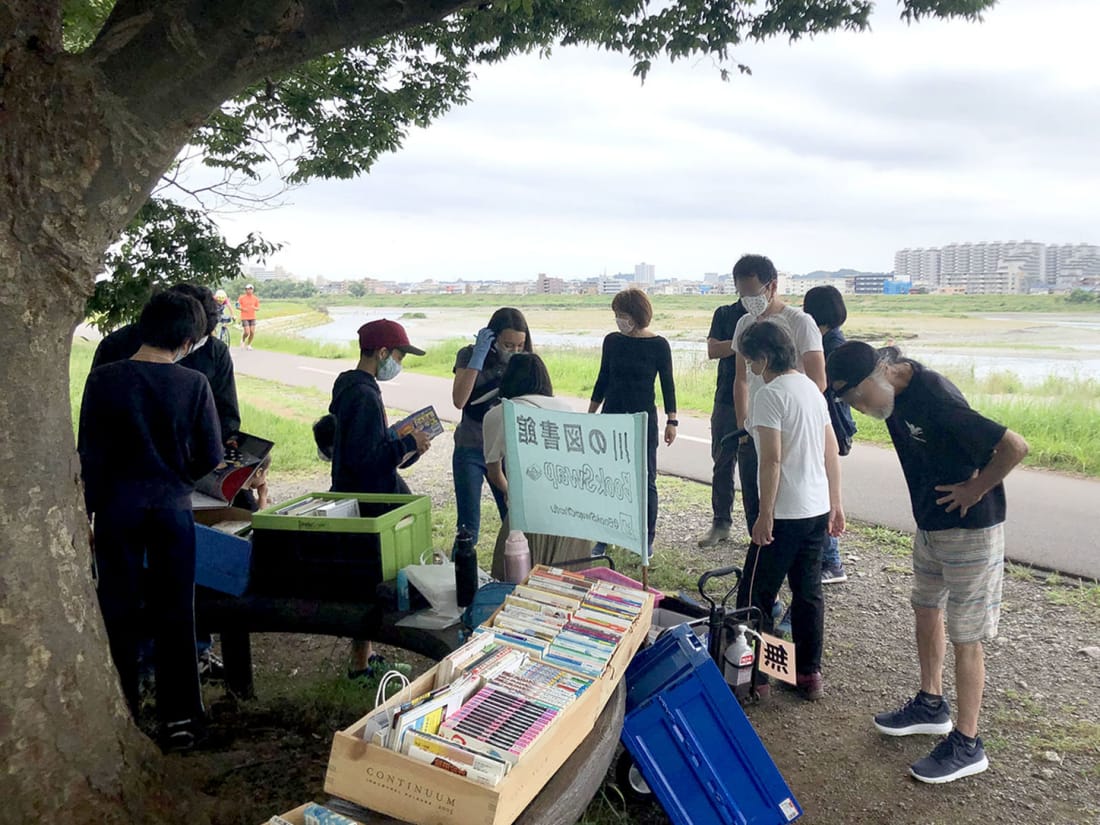
Following a feature in the newspaper Yomiuri Shimbun, book donations started coming in from Nara, Toyama and Tochigi. The BookSwapChofu Twitter account gained followers from Japanese directors, screenwriters and radio stations. Now Kumagai has more than 500 books in her ever-growing library.
There are Japanese and English titles. There are finance books, travel guides and diet and self-help books. There is a copy of Alice in Wonderland, a compilation of fairytales written by Kenji Miyazawa, biographies of Mother Theresa and Helen Keller and on and on.
“I like that feeling of buying a new book. I like the feeling of opening the pages,” says Kumagai. “I think that other people share the same feeling.”
Borne from the Pandemic
Then a seventh grader, Kumagai started self-isolating at home when her school shut down in early March to help prevent the spread of the new coronavirus infections. She kept herself busy by reading books from the library. Then Tokyo’s libraries shut down.
At a loss, Sara had a dinnertime conversation with her parents – Susana Kumagai and Antonio Villasmil. Sara came up with the concept of Library by the River on her own, and initiated the project.
Volunteering is something the Kumagai-Villasmil family takes to heart. They spend every New Year’s Day feeding Tokyo’s homeless. During the family vacation to India, they volunteered at a Sikh temple, feeding 500 homeless people every five minutes.
It was during a family vacation to Washington state Kumagai was introduced to the Little Free Library and was inspired to use the same concept for The Library by the River.
The Little Free Library Concept
The Little Free Library was started in 2009 when Wisconsin resident Todd Bol used extra wood from an old garage door to build a box that looked like a schoolhouse as a tribute to his mother, a former teacher. He filled it with books, and passersby were allowed to take a book and leave a book.
Bol began building similar libraries throughout the Midwest and today there are about 90,000 Free Little Libraries in 91 countries. The Library by the River works as a similar book swap. There are no library cards. There are no fees. Customers are free to take as many books as they like. Usually on their second visit, they bring a handful of books to donate.
The Little Free Libraries are generally located at public parks or street corners. Kumagai found her shady spot on public land next to the Tama River. She enjoys watching kayakers float down the river. The loops of Yomiuri Land roller coasters can be seen over the treeline on the opposite bank. On clear days, Mount Fuji looms above all.
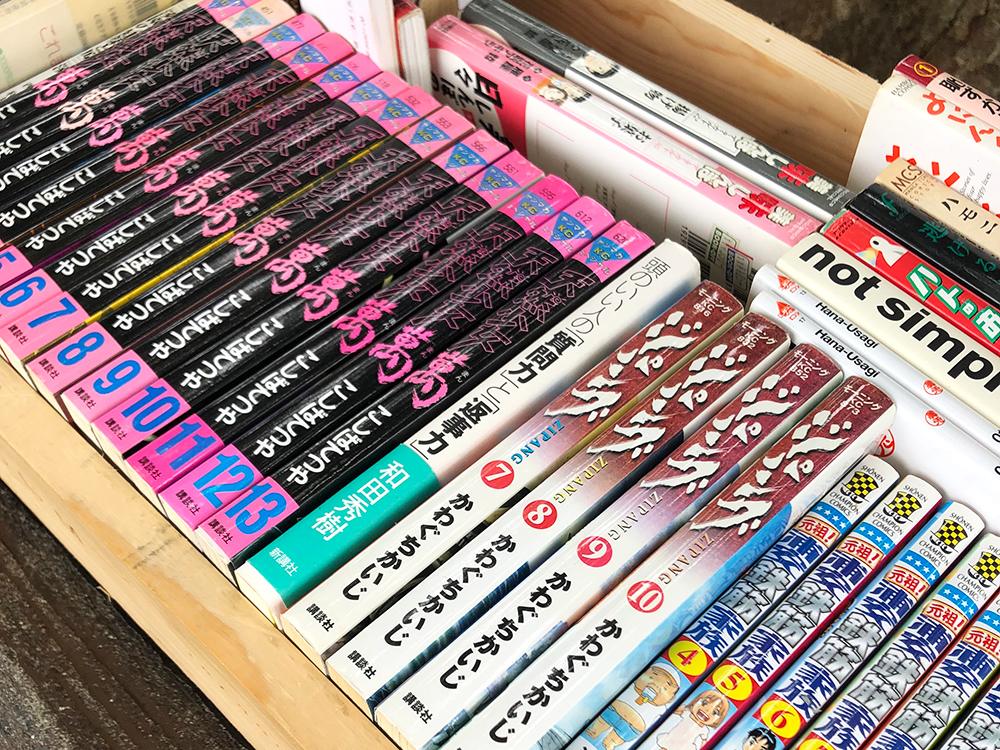
At the end of the Sunday session, Kumagai is tuckered out. The final customers have left. Her parents took the books home. She doesn’t have the total tally yet, but she topped 56 customers, the previous best.
Kumagai says she plans to keep the Library by the River going as long as she can, with the goal of launching more free libraries in Tokyo parks. She looks out at the Tama River.
“Before the coronavirus, I lived in a small world, and I only thought about school,” she says. “I never thought I could do more things outside of the classroom.”
Then Kumagai is off to make a pick-up. A family friend has books to donate.
Follow Library by the River on Twitter at @BookSwapChofu

